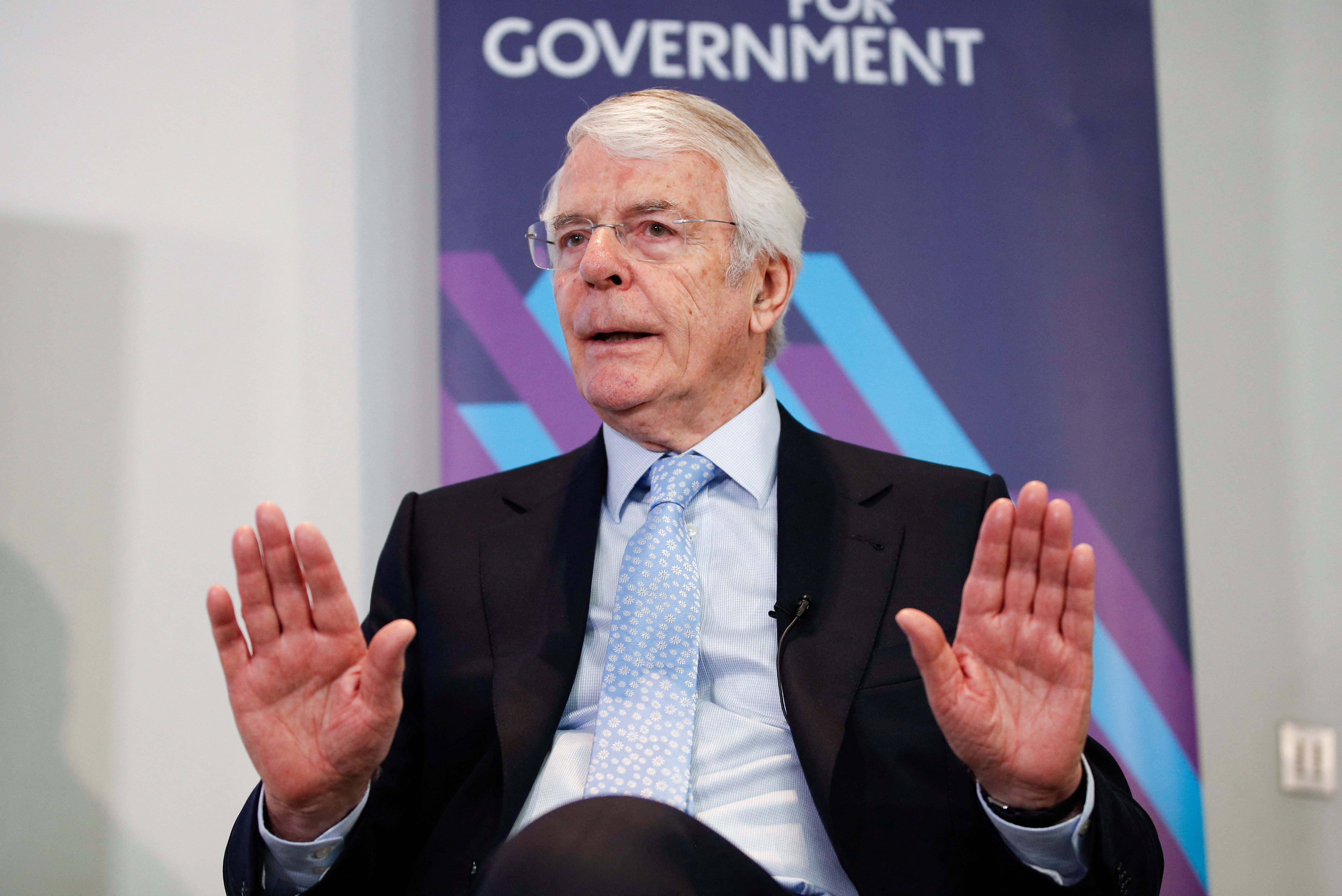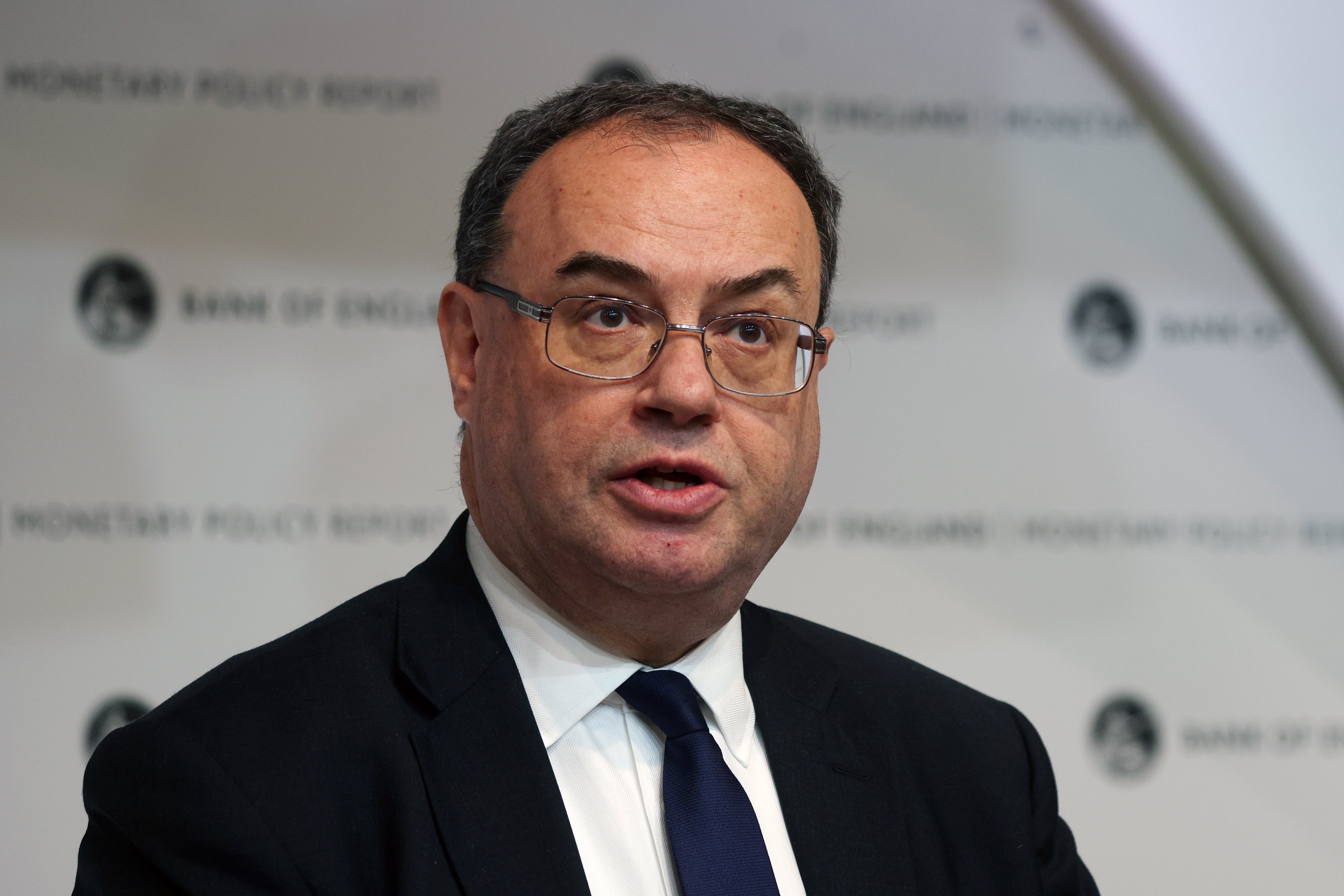
Sir John Major has said “help must come” for people struggling to pay their bills while the cost of living continues to rise.
The former Conservative prime minister said at a conference in Newcastle on Monday that a lack of government support for “the penniless” would lead to loss of trust in the state.
Sir John – who succeeded Margaret Thatcher to lead the Conservative Party from 1990 to 1997 – said that rising prices, high taxes and high inflation meant people would be “utterly unable to meet the bills”.
In addressing the National Cathedrals Conference, he said: “Help must come – and I hope it will come soon.”
He also said: “Everyone needs to believe that the state cares about them - and not just the interests of the powerful, the motivators, and the elite. If the week lasts longer than the money, do the penniless believe the state cares about them?”
Providing support would help bring “trust and respect back to politics”, Sir John added.

His comments come as millions of households are struggling with the cost-of-living crisis that has been made more difficult by higher tax and national insurance rates, and rising inflation.
Sir John’s words contrast with those of safeguarding minister Rachel Maclean, who said the government had “already taken action to help people with energy bills and there’s more help coming”.
Labour said her comments were “disconnected from the realities of people’s lives”, after she suggested on Sky News that cash-strapped citizens could be “taking on more hours or moving to a better paid job”.
On Wednesday, the Bank of England (BoE) is expected to announce inflation of more than 9 per cent – the highest rate in 30 years. The bank’s governor Andrew Bailey blamed the sharp rise in inflation on the Russian invasion of Ukraine and the Covid pandemic.
Average household energy bills have risen by almost £700 to just under £2,000 a year in April, and the BoE is expecting another annual rise of £800 in October.

Labour has said it will call for a vote on Tuesday to introduce a windfall tax on energy companies’ profits. Ministers have previously rejected introducing the one-off tax, arguing it would deter investment.
But some Conservative MPs have urged the government to adopt Labour’s proposals.
Treasury committee chair Mel Stride said he would normally oppose such a tax but that current “extraordinary circumstances” could call for “a one-off windfall tax”.
Pressure on the government to provide financial aid to those hit hardest also came from the Confederation of British Industry (CBI), which has opposed a windfall tax on energy firms.
Tony Danker, the director-general of the CBI, said it was a “moral imperative” that chancellor Rishi Sunak offers a lifeline to those who are struggling to make ends meet, but via a one-off payment or increase in universal credit.
He advised Mr Sunak – who has pledged to provide more support for people affected by the sharp rise in energy prices triggered by Russia’s invasion of Ukraine – to not wait until the autumn Budget to offer help.
Mr Danker said: “The first is to help people facing real hardship now. It’s the moral underpinning of our economy and society.
“Recent surveys suggest more than one in 10 households have skipped – or had smaller – meals in the past month because of a lack of affordability, while about half a million more households are expected to face choices between heating and eating.
“Putting pounds in the pockets of people struggling the most should not be delayed.”
He also called on the government to “ensure that there is economic growth in the pipeline to avoid any downturn in our economy that could worsen or prolong the cost of living crisis.”







